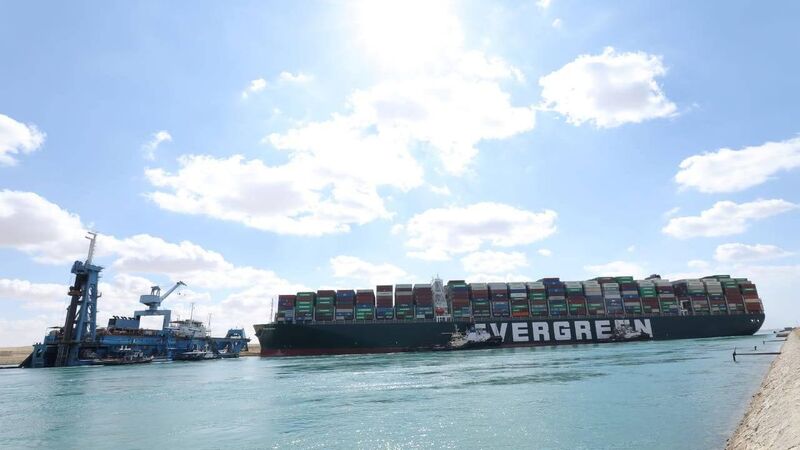'Stuck for weeks' worst-case outlook as Suez tanker hits oil and Europe's factories

Stranded container ship Ever Given is seen after it ran aground in the Suez Canal, Egypt.
The Dutch emergency response team hired to free the vast ship blocking the Suez canal has pulled off some dramatic recoveries, including lifting Russia's Kursk nuclear submarine from the Barents Sea floor, but says the current mission in Egypt is one of the trickiest it has faced.
Weighing 200,000 tonnes without cargo, the Ever Given is the heaviest vessel that Smit Salvage, a subsidiary of the Dutch marine services company Boskalis contracted in the rescue, has faced in its nearly 180-year history.











